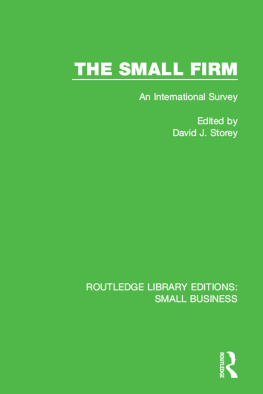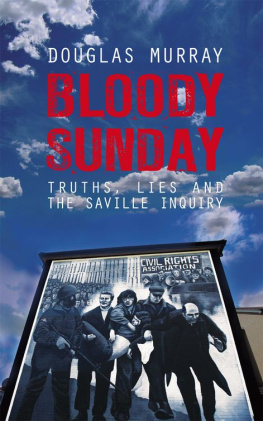David Storey - Saville
Here you can read online David Storey - Saville full text of the book (entire story) in english for free. Download pdf and epub, get meaning, cover and reviews about this ebook. year: 1999, publisher: Vintage, genre: Detective and thriller. Description of the work, (preface) as well as reviews are available. Best literature library LitArk.com created for fans of good reading and offers a wide selection of genres:
Romance novel
Science fiction
Adventure
Detective
Science
History
Home and family
Prose
Art
Politics
Computer
Non-fiction
Religion
Business
Children
Humor
Choose a favorite category and find really read worthwhile books. Enjoy immersion in the world of imagination, feel the emotions of the characters or learn something new for yourself, make an fascinating discovery.
- Book:Saville
- Author:
- Publisher:Vintage
- Genre:
- Year:1999
- Rating:3 / 5
- Favourites:Add to favourites
- Your mark:
- 60
- 1
- 2
- 3
- 4
- 5
Saville: summary, description and annotation
We offer to read an annotation, description, summary or preface (depends on what the author of the book "Saville" wrote himself). If you haven't found the necessary information about the book — write in the comments, we will try to find it.
Saville — read online for free the complete book (whole text) full work
Below is the text of the book, divided by pages. System saving the place of the last page read, allows you to conveniently read the book "Saville" online for free, without having to search again every time where you left off. Put a bookmark, and you can go to the page where you finished reading at any time.
Font size:
Interval:
Bookmark:

David Storey

This eBook is copyright material and must not be copied, reproduced, transferred, distributed, leased, licensed or publicly performed or used in any way except as specifically permitted in writing by the publishers, as allowed under the terms and conditions under which it was purchased or as strictly permitted by applicable copyright law. Any unauthorised distribution or use of this text may be a direct infringement of the authors and publishers rights and those responsible may be liable in law accordingly.
Version 1.0
Epub ISBN 9781446419342
www.randomhouse.co.uk
Published by Vintage 1999
8 10 9 7
Copyright David Storey. 1976
This book is sold subject to the condition that it shall not by way of trade or otherwise, be lent, resold, hired out, or otherwise circulated without the publishers prior consent in any form of binding or cover other than that in which it is published and without a similar condition including this condition being imposed on the subsequent purchaser
First published in Great Britain by Jonathan Cape, 1976
Vintage
Random House, 20 Vauxhall Bridge Road,
London SW1V 2SA
Random House Australia (Pty) Limited
20 Alfred Street, Milsons Point, Sydney
New South Wales 2061, Australia
Random House New Zealand Limited
18 Poland Road, Glenfield.
Auckland 10, New Zealand
Random House (Pty) Limited
Isle of Houghton, Corner of Boundary Road & Carse OGowrie,
Houghton 2198, South Africa
The Random House Group Limited Reg. No. 954009
www.randomhouse.co.uk
A CIP catalogue record for this book is available from the British Library
ISBN 9780099274087
David Storey was born in 1933 in Wakefield, and studied at the Slade School of Art. His eight previous novels have won many prizes, including the Macmillan Fiction Award, the Somerset Maugham Award, the Faber Memorial Prize and, in 1976, the Booker prize for Saville. He is also the author of fifteen plays. He now lives in London.
BY DAVID STOREY
Novels
This Sporting Life
Flight into Camden
Radcliffe
Pasmore
A Temporary Life
Saville
A Prodigal Child
Present Times
A Serious Man
Plays
The Restoration of Arnold Middleton
In Celebration
The Contractor
Home
The Changing Room
The Farm
Cromwell
Life Class
Mothers Day
Sisters
Phoenix
Early Days
The March on Russia
Stages
Caring
Poetry
Storeys Lives
General
Edward
(with drawings by Donald Parker)
Towards the end of the third decade of the present century a coal hauliers cart, pulled by a large, dirt-grey horse, came into the narrow streets of the village of Saxton, a small mining community in the low hill-land of south Yorkshire. By the side of the haulier sat a dark-haired woman with phlegmatic features and dark-brown eyes. She wore a long reddish coat which covered the whole of her, except for her ankles, and a small, smooth-crowned hat which fitted her head rather like a shell and beneath which her hair showed in a single, upturned curl. In her arms, wrapped in a grey blanket, sat a child, scarcely more than a year old, with fair hair and light-blue eyes, who, as the cart pulled into a street several hundred yards from the village centre, where the houses gave way to farm fields, gazed about it in a blinded fashion, its attention suddenly distracted from the swaying of the horse in front.
On the back of the cart were piled numerous items of household furniture; numerous that is in the context of the cart, for it was plainly not designed to carry such a multifarious cargo. There were a square wooden table with four wooden chairs, two upholstered chairs in a dilapidated condition, a double bed with wooden headboards and a metal-sprung base, various pots and pans and boxes, a cupboard, a chest of drawers and a tall, brown-painted wardrobe, the door of which was lined with a narrow mirror.
Riding uncomfortably on top of this load was a small, fair-haired man with light-blue eyes. He wore a loose, unbuttoned jacket, a collarless shirt and, unlike the woman, was gazing around him with evident pleasure. As the cart came to a turning of small terrace houses leading directly towards the fields he called out to the driver, who, clicking his tongue, turned the horse and, to the fair-haired mans instructions, pulled up finally outside a small, stone-built house, the centre one of a terrace of five. A door and a window occupied the ground-floor of the building, and two single windows the first-floor, the roof itself topped by large, uneven stone-slab slates.
The fair-haired man sprang down; he opened the tiny gate that led across a garden scarcely six feet broad and, taking a key from his jacket pocket, unlocked the dull brown door and disappeared inside. A few moments later he came out again; he signalled to the cart and after a moments hesitation the child was lifted down. No sooner was it on its feet, however, than it set off with unsteady steps, not towards the open gate, but away from it, back along the street the way theyd come.
Nay, Andrew, the man called and, after helping down the woman, he turned and went after the baby, finally catching him up in his hands and laughing. And wheres thy off to, then? he said, delighted with the childs robustness. Off back home, then, are you? turning the babys head towards the house. This is thy home from now on, he added. This is where thys barn to live, and called to the woman who stood apprehensively now at the open gate, Here, then, Ellen, you can take him in.
The furniture was lifted down, and the haulier and the fair-haired man carried it inside: the bed, in pieces, was set down in the tiny room at the front upstairs; a cot, little more than a mattress in a wooden box, was set beside it with that and the wardrobe there was scarcely any space to move at all. The chest of drawers was squeezed into one of the two rooms overlooking the rear of the house: one room was scarcely the width of a cupboard, the other was square-shaped, its narrow window looking down on to the communal backs and, beyond those, the strips of garden exclusive to each house, which ran down to the fenced field and were enclosed by the houses the other side.
The remainder of the furniture was set in the kitchen and the front room downstairs.
Well, fancy we mun celebrate, the fair-haired man said when the job was done. He hunted through the various boxes and produced finally three cups; from a shopping bag he took out a bottle. He looked round for somewhere to remove the top and finally edged it off against the square-shaped sink which stood beneath a single tap in the corner of the kitchen. A high, mantelshelfed cooking range and a pair of inset cupboards occupied the remainder of the wall.
None for me, the mother said, still holding the baby to her and looking round at the room. I cant stomach beer.
Just what you want after a job like this. The fair-haired man drank his undismayed.
Well, heres to it, Mr Saville, the haulier said. Good luck and happiness in your new home. He raised his cup to the dark-haired woman, who, until now, had removed neither her coat nor her hat, and added, May all your troubles be little ones.
The woman glanced away; the fair-haired man had laughed. Aye, heres to it, he said, quickly filling his cup again and offering the remainder to the driver.
Font size:
Interval:
Bookmark:
Similar books «Saville»
Look at similar books to Saville. We have selected literature similar in name and meaning in the hope of providing readers with more options to find new, interesting, not yet read works.
Discussion, reviews of the book Saville and just readers' own opinions. Leave your comments, write what you think about the work, its meaning or the main characters. Specify what exactly you liked and what you didn't like, and why you think so.











